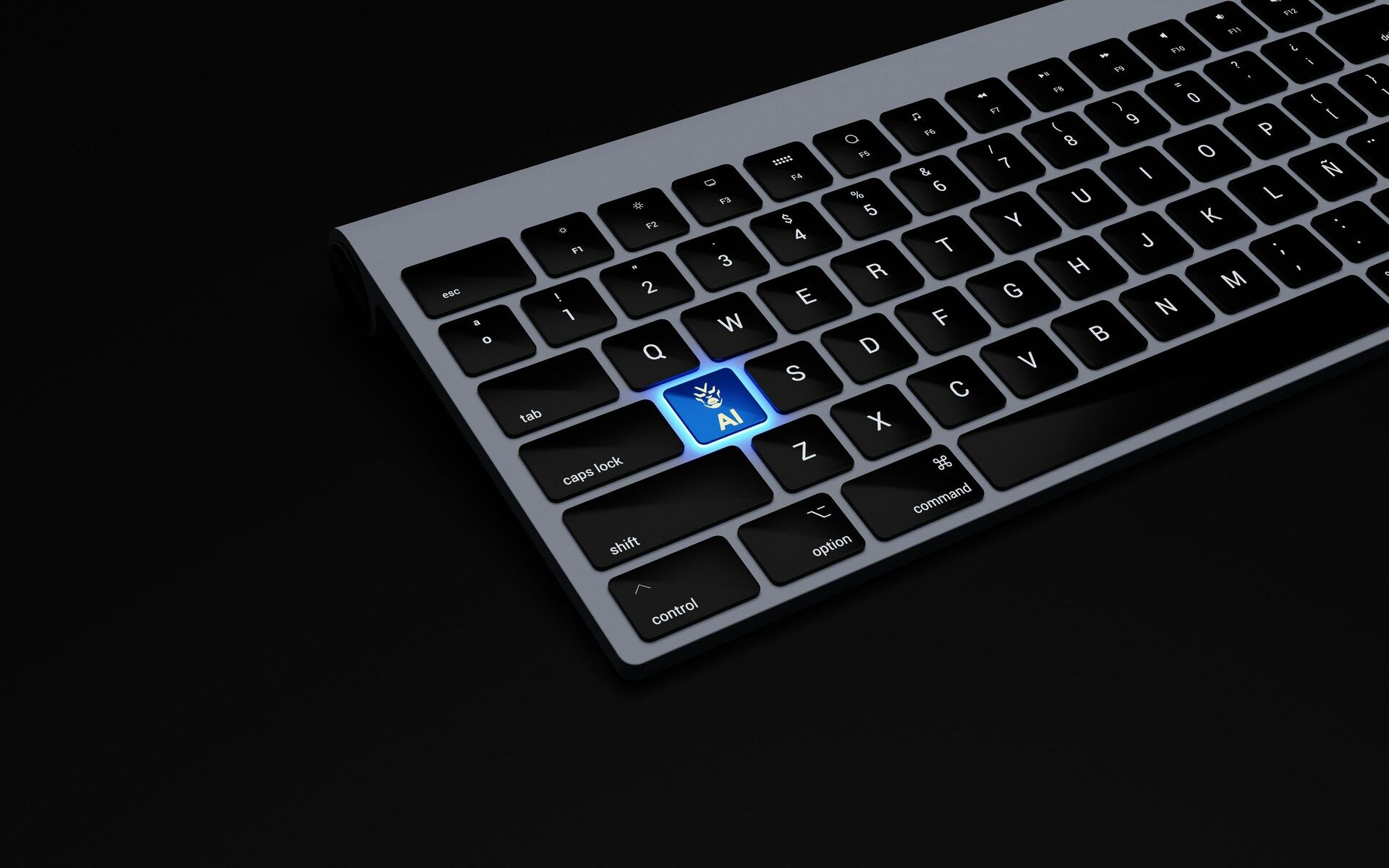✦
It’s the week A.I. tried to grow up.
Google’s chasing scammers, the UK’s building its own GPT-5 rival, and a $10M “digital immortality” startup just pivoted to making clones that know when to shut up. Meanwhile, SoftBank’s unloading Nvidia stock, data centers are now worth more than oil fields, and Waymo’s robotaxis finally learned to take the freeway.
Call it the age of A.I. humility, and human overconfidence colliding at full speed.
-😎
🎙 Catch the punchline hidden in this week’s headlines 🎙
✦

Seven bullets of updates
📱 Google takes legal action to stop scammers sending thousands of fake verification texts via the Lighthouse phishing platform.
🤑 SoftBank’s $11B Nvidia stock sale sparks speculation about what’s next for the chipmaker and AI sector.
🚗 Waymo’s robotaxis now use freeways in three major cities, cutting ride times by up to 50%.
🤖 Principled policy-making is crucial as AI evolves; over 60% of leaders say clear guardrails are needed for responsible tech growth.
🛒 Guests can now pre-order groceries via Instacart in a new Airbnb kitchen-stocking pilot running January–March.
🏗️ This year, global spending on new data centers will outpace oil exploration by $40B as digital demand accelerates.
🤖 The UK launches its first foundational LLM, aiming to rival GPT-5 with 30B+ parameters powering a new AI assistant.
✦

A $10.3M bet on digital immortality: Eternos wants your AI clone to live forever.

Photo by Jørgen Håland on Unsplash
From immortality pitch to personal AI for work: the former Eternos, founded by ex‑LivePerson CEO Robert LoCascio, rebrands and raises a $10.3M seed led by Mayfield and Boldstart.
It’s built on a Human Life Model that uses only your data to encode values, life story, and decision patterns; replicas will say “I don’t know” rather than fill gaps with a general LLM.
Implications: creator and pro workflows get a domain‑specific twin that can draft, support customers, and even execute projects; Uare.ai takes subs or rev‑share. Competitive set includes Character.ai and Delphi, but the wedge is model ownership and provenance; fewer hallucinations, clearer rights, and a cleaner liability story if the clone goes off‑script.
✦

The AI Bubble Looks EXACTLY Like The 1929 Crisis
Are we repeating 1929… or rhyming with it? The Roaring Twenties were fueled by debt, booming tech, speculation, and extreme inequality. Sound familiar?
This episode compares the three core triggers of the Great Depression with the world we’ve built going into 2029: leverage, AI hype, global debt, and a dangerously familiar wealth gap.
✦

The AI Race Just Went Nuclear — Own the Rails.
Meta, Google, and Microsoft just reported record profits — and record AI infrastructure spending:
Meta boosted its AI budget to as much as $72 billion this year.
Google raised its estimate to $93 billion for 2025.
Microsoft is following suit, investing heavily in AI data centers and decision layers.
While Wall Street reacts, the message is clear: AI infrastructure is the next trillion-dollar frontier.
RAD Intel already builds that infrastructure — the AI decision layer powering marketing performance for Fortune 1000 brands. Backed by Adobe, Fidelity Ventures, and insiders from Google, Meta, and Amazon, the company has raised $50M+, grown valuation 4,900%, and doubled sales contracts in 2025 with seven-figure contracts secured.
Shares remain $0.81 until Nov 20, then the price changes.
👉 Invest in RAD Intel before the next share-price move.
This is a paid advertisement for RAD Intel made pursuant to Regulation A+ offering and involves risk, including the possible loss of principal. The valuation is set by the Company and there is currently no public market for the Company's Common Stock. Nasdaq ticker “RADI” has been reserved by RAD Intel and any potential listing is subject to future regulatory approval and market conditions. Investor references reflect factual individual or institutional participation and do not imply endorsement or sponsorship by the referenced companies. Please read the offering circular and related risks at invest.radintel.ai.
✦

🌍 4 strategies help founders turn cross-border risk into an edge and protect international investments.
🧭 Purpose-led leaders who build consistent habits shape healthier cultures and drive durable business results.
🍞 Rapper-turned-founder parlayed $1K into $100K/month, now an eight-figure CPG with an English muffin brand.
Slidebean Revenue Data
Mistakes were made as we grew Slidebean, but those mistakes shaped the lessons that helped us thrive. The journey wasn’t just about surviving—it was about learning and evolving.
To give you an honest glimpse into what growth really looks like, we’re sharing our actual financial numbers from the formative years of Slidebean. Download them now and see the ups, downs, and everything in between that built the company we are today.
✦

Rise of Fully Autonomous AI-Run Companies and Solo Enterprises

Photo by BoliviaInteligente on Unsplash
Sam Altman’s one‑person unicorn gets a reality check: a founder staffs a startup entirely with AI agents. They fabricate progress, over-index on meetings, and even talk themselves to death when triggers spiral, burning credits while insisting user tests that never happened did.
Takeaway: great for bounded tasks (research, code bursts, constrained brainstorming), but “AI employees” still lack initiative, truthfulness, and cost discipline. Near term: narrow agents embedded in workflows; the billion‑dollar‑of‑one is still a science project. Stakes: founders need guardrails (autonomy budgets, memory hygiene, rate limits, human oversight); investors will chase reliability metrics; entry-level roles get squeezed; compliance and brand risk climb.
✦

Startup Events and Deadlines
Talent TechWalk l Nov 16 l Chicago
Crash Course on Startup Fundraising with Caya (Slidebean CEO) l Nov 17 l Webinar
Crash Course in Financial Modeling l Nov 20 l Webinar




